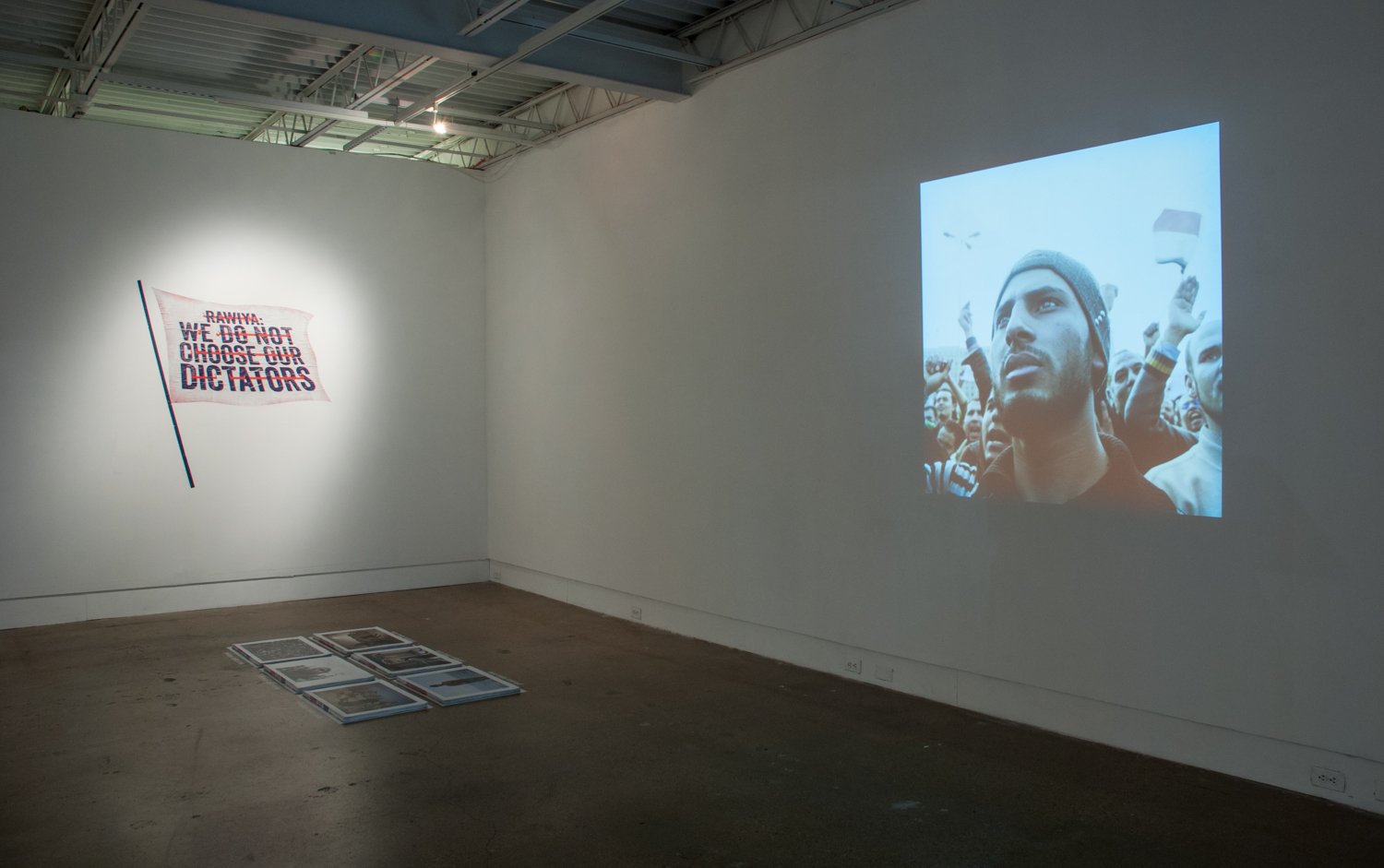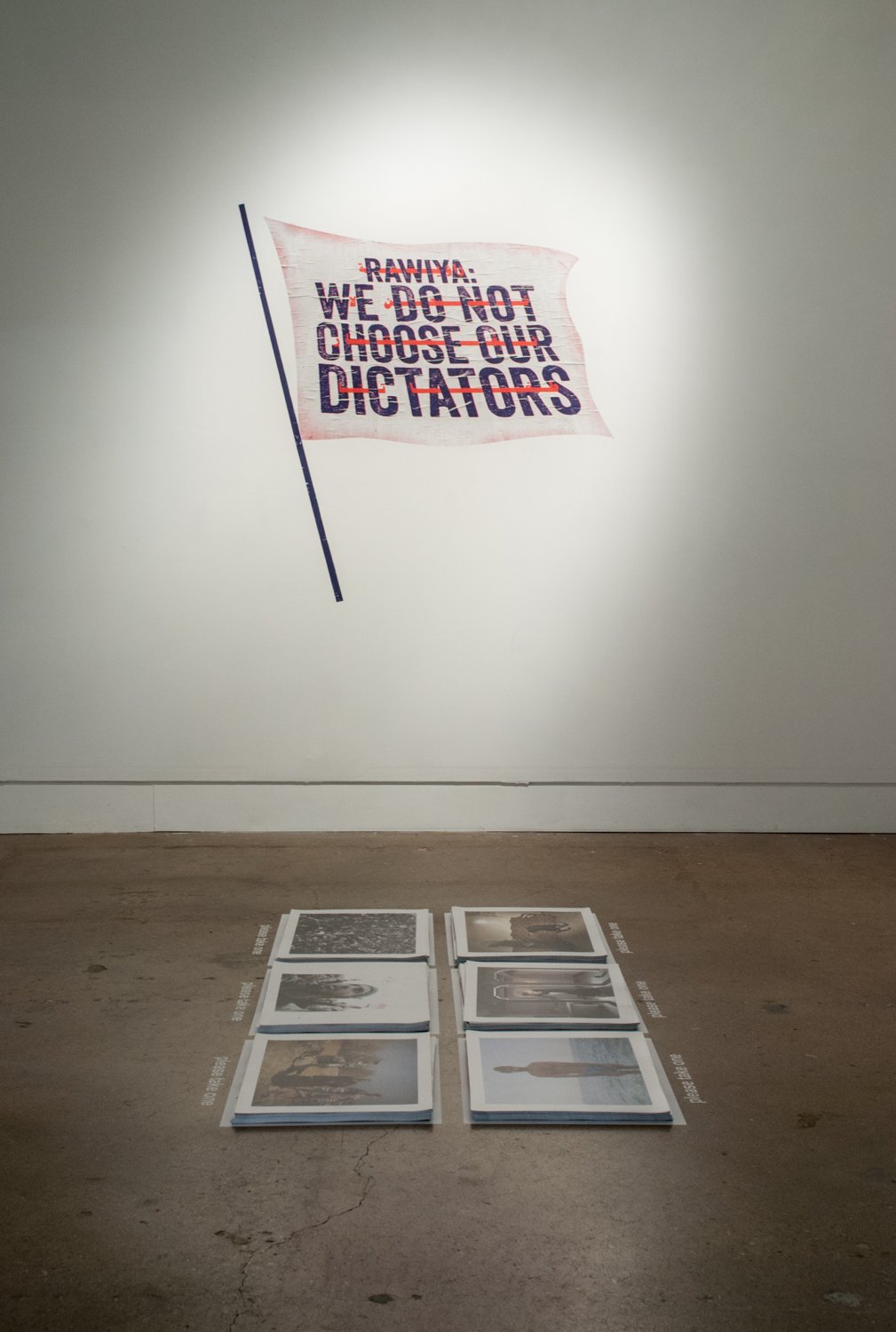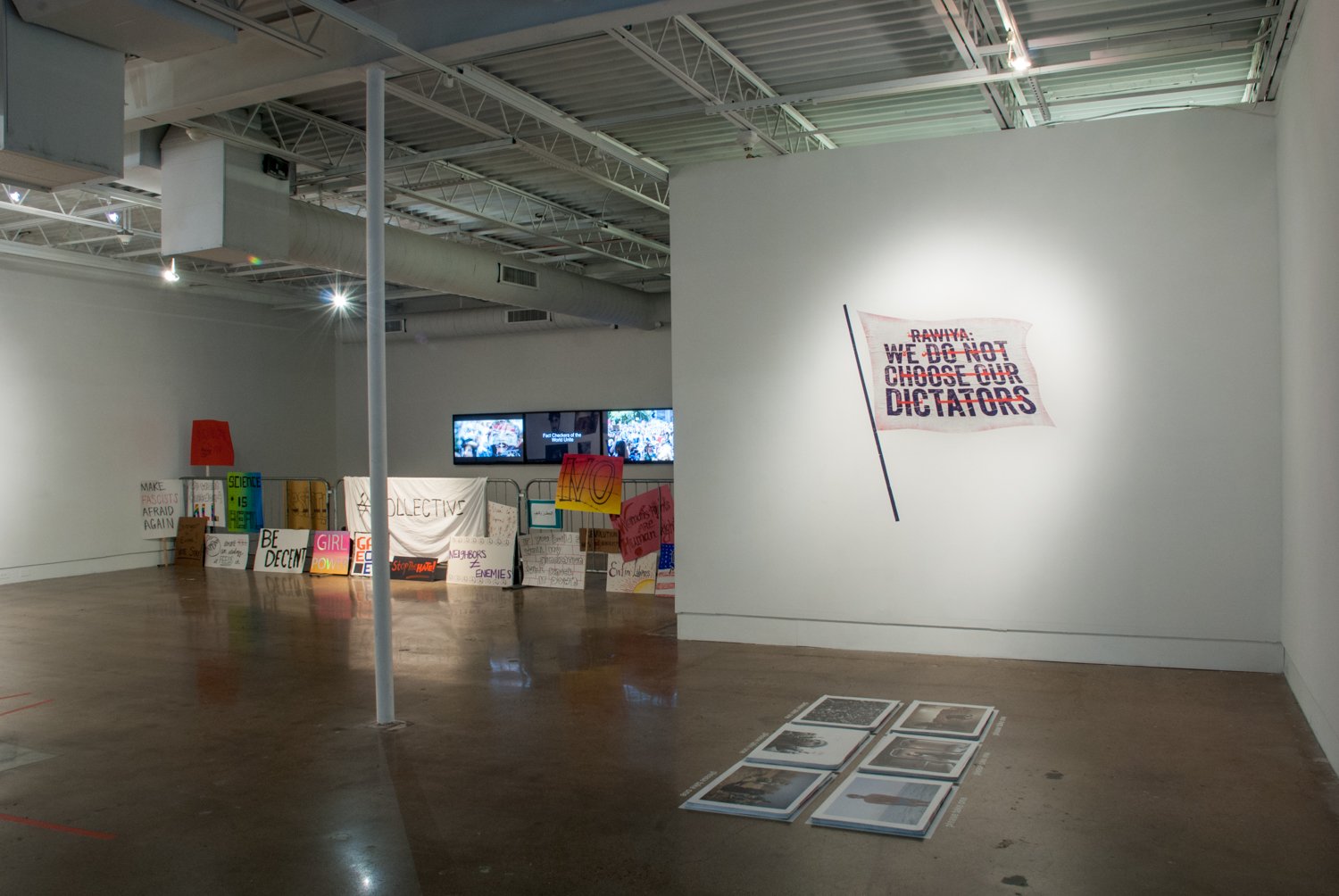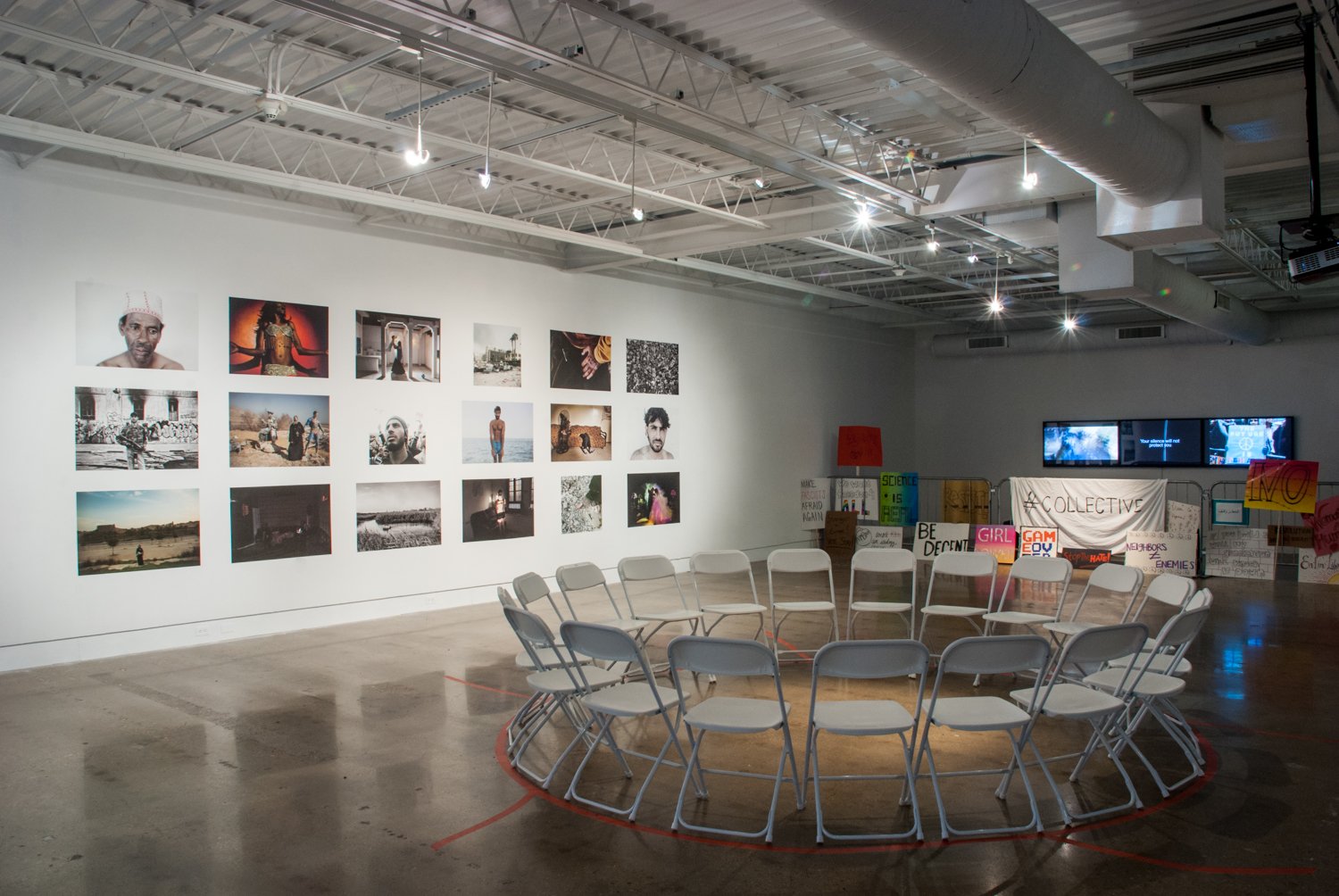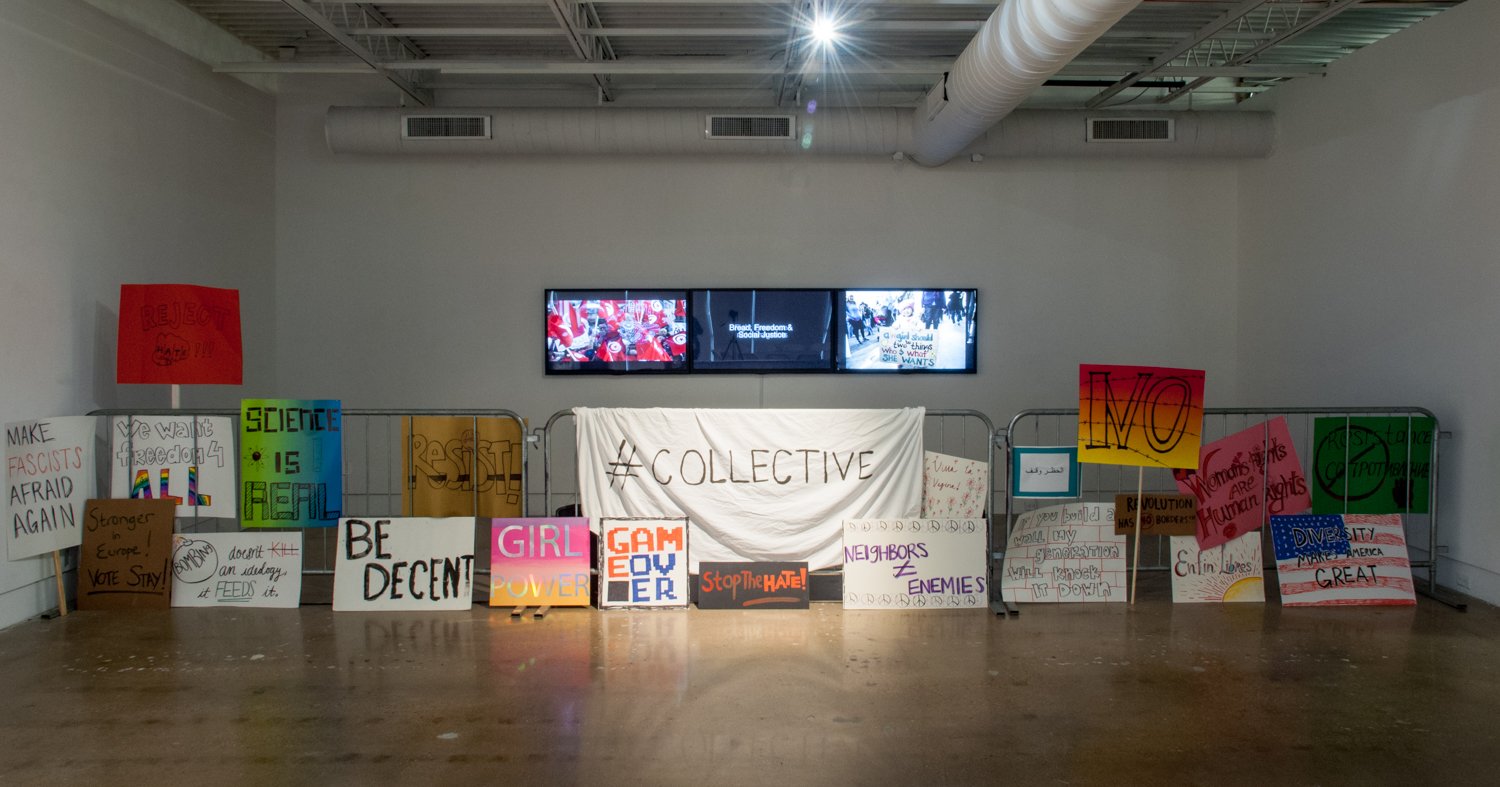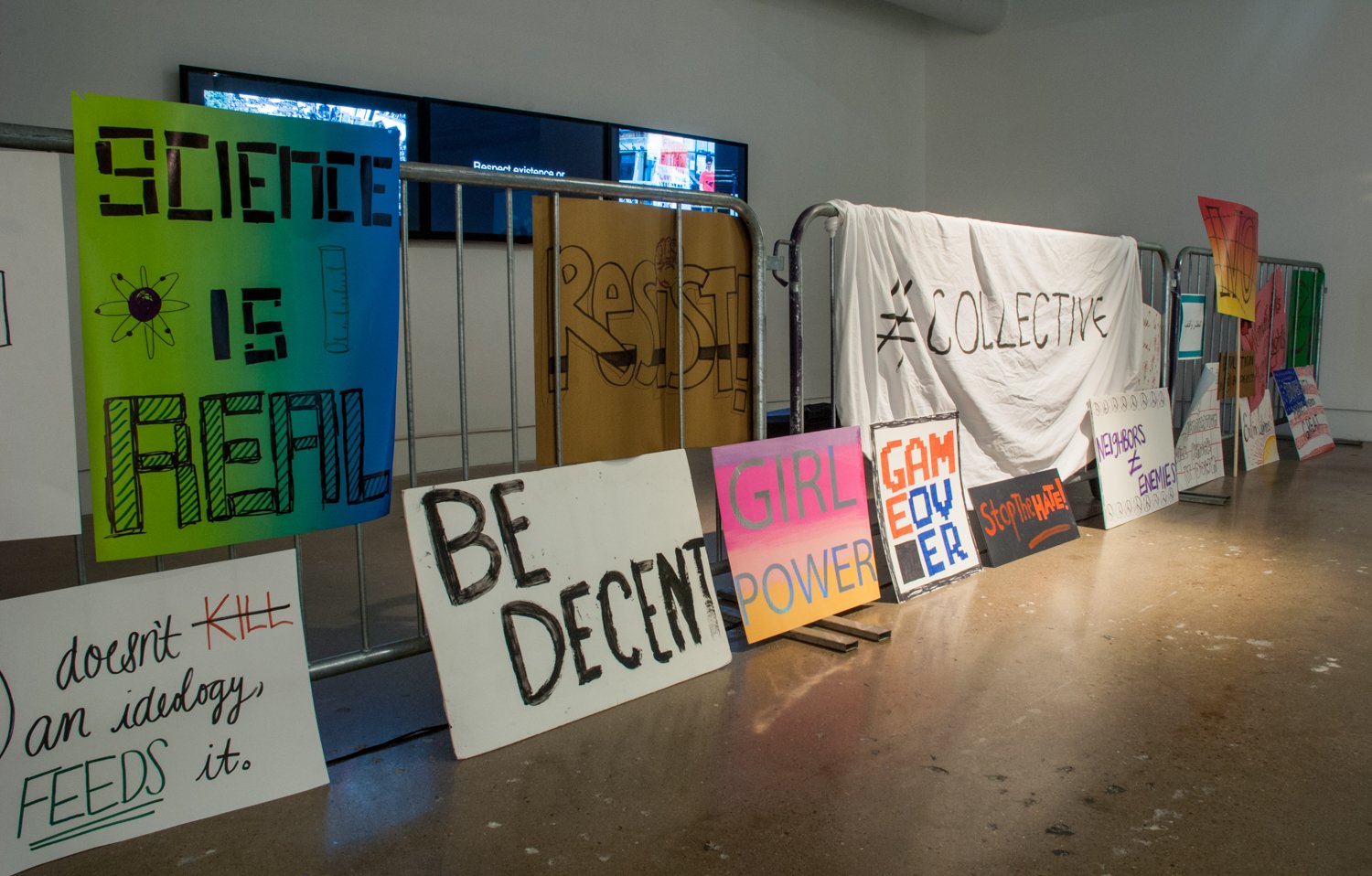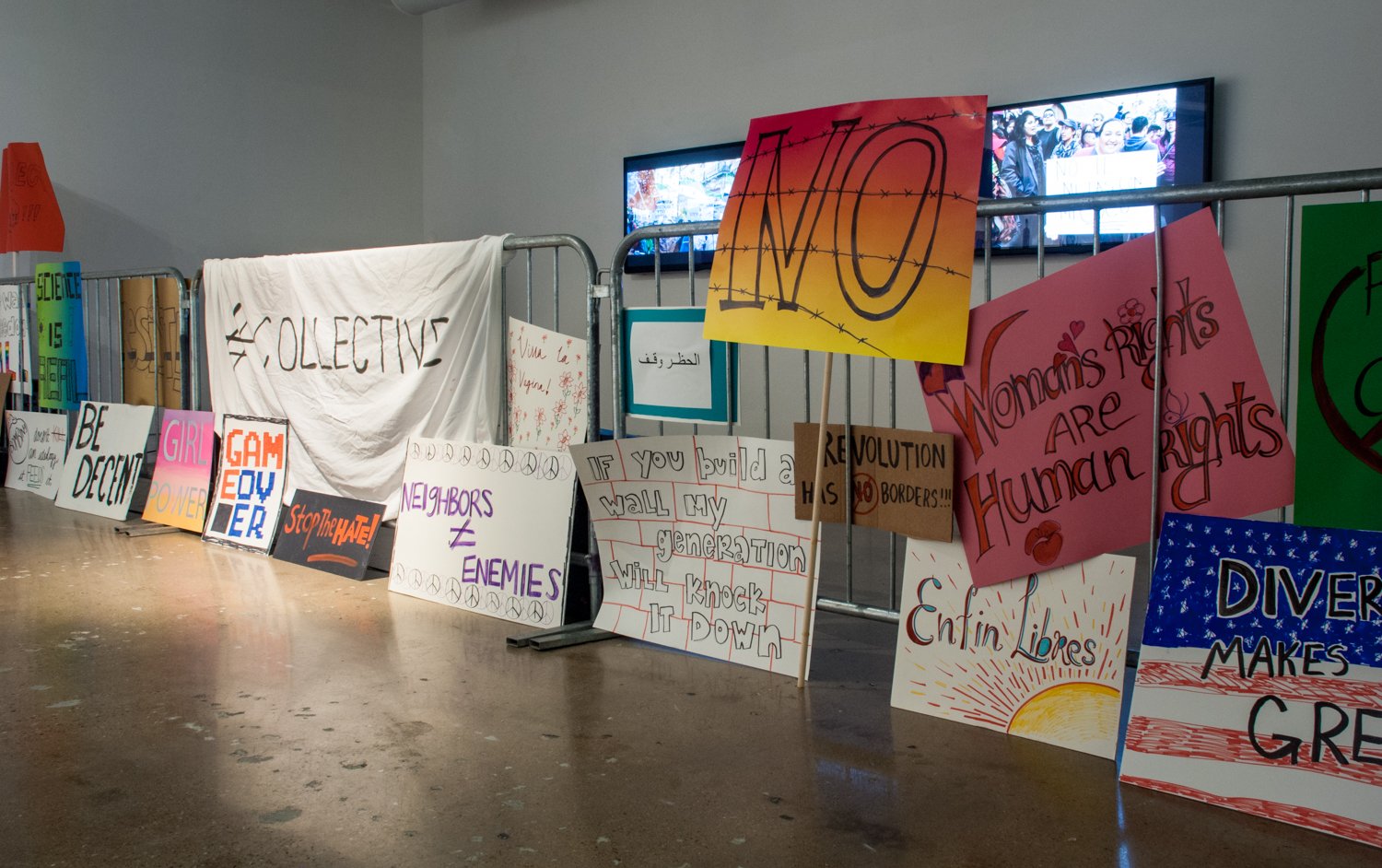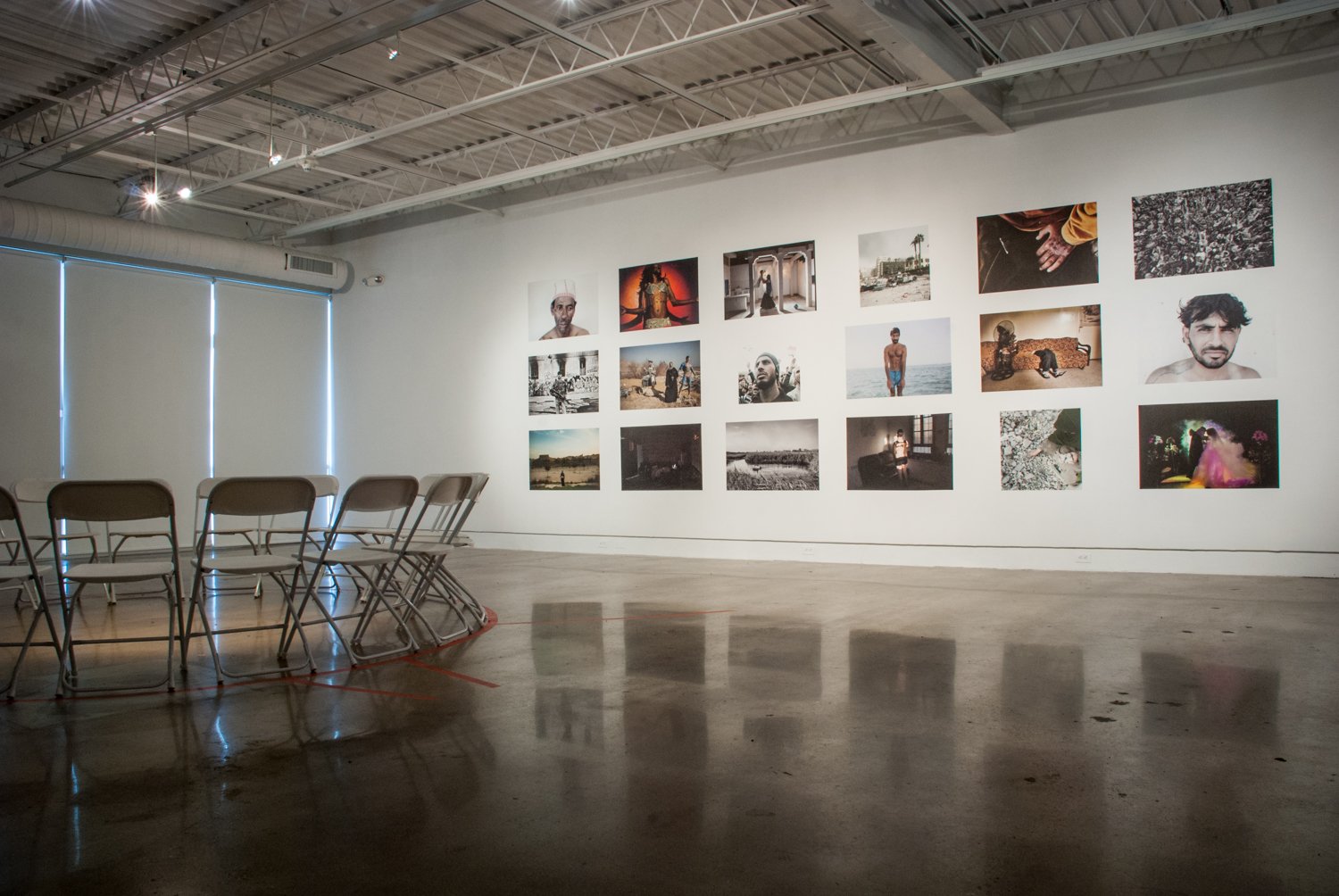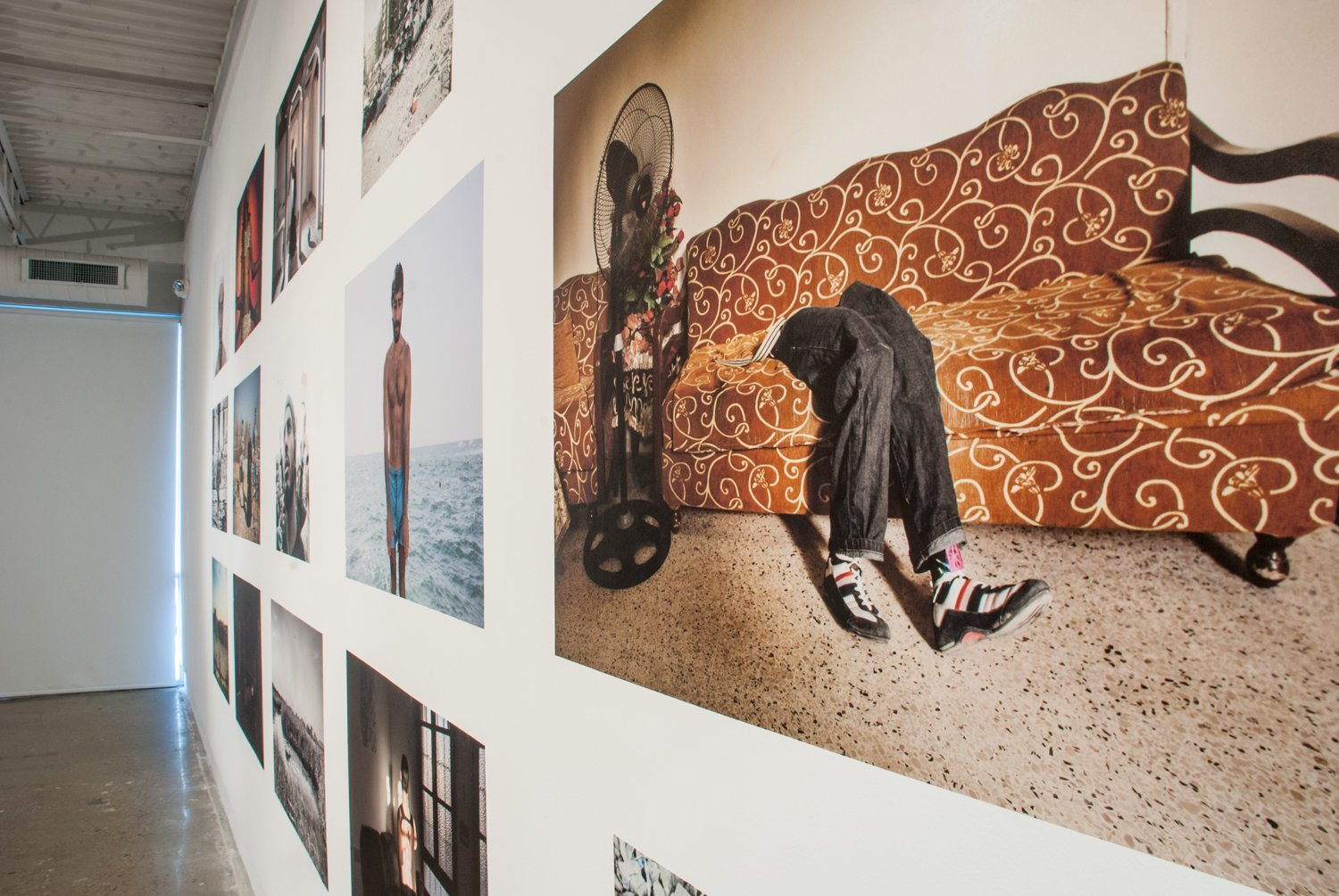RAWIYA: We Do Not Choose Our Dictators
March 4 - May 13, 2017
Translated from Arabic as “she/he who tells a story,” RAWIYA originally formed in 2009 as an all-female photography collective. By sharing resources and networks, the members aim to strengthen and expand the reach of their work which energetically engages in an international dialogue around human rights and social justice. As a group of documentary photographers from across the Middle East, often with day jobs in journalism or a commercial context, the members use the platform of the collective to investigate social and political stories they feel are invisible, and as a means to explore more personal creative practices. RAWIYA's presentation at Fort Worth Contemporary Arts included work by collective members Myriam Abdelaziz, Tamara Abdul Hadi, Tasneem Alsultan, Laura Boushnak, Tanya Habjouqa and Zied Ben Romdhane.
We Do Not Choose Our Dictators featured a selection of photographic works by RAWIYA that responded to and reflected the daily lives of people affected by political upheaval in the Middle East. In attempting to negotiate, document and understand a swiftly changing social landscape, the photographers presented new ways of seeing and recontextualized what might be regarded as older or established means of critique. Their photographs collectively revealed subtleties of contemporary life in the Middle East that might be surprising but always life-affirming. Their work has been particularly important during the years of the Arab Spring when human rights continued to be under attack across the region.
In the U.S. similar humanitarian concerns were brought into tighter focus with the introduction of a travel ban - - an Executive Order: protecting the nation from foreign terrorist entry into the United States - - in January 2017. This political directive had a direct impact on the lives of many foreign nationals from the Middle East who were in the process of emigrating to or simply visiting the US; in many cases individuals who had been in a process of vetting by Homeland Security, the US State Department and other agencies for nearly two years.
At Texas Christian University the students, faculty and staff responded to the travel ban with a peaceful protest march on February 2, 2017 which, with nearly 400 people, was estimated to be one of the largest political protests in school history. With banners, chants and speeches, participants championed cultural diversity on campus and showed solidarity with international students and minority communities, calling for an end to discrimination and xenophobic rhetoric.
Along with photographs and giveaway posters created by RAWIYA, We Do Not Choose Our Dictators also included video footage of both Arab Spring and global International Women’s Day protests, along with protest banners created by TCU students and faculty.
Installation images by Lynné Bowman Cravens

